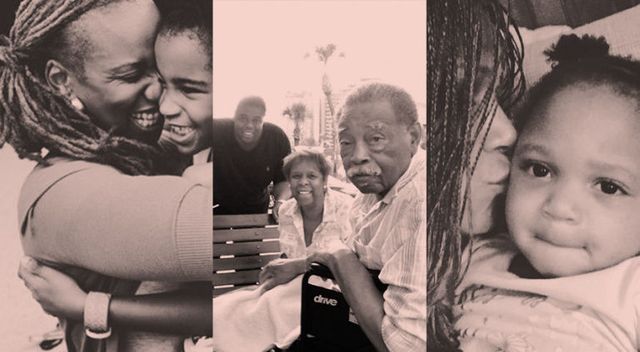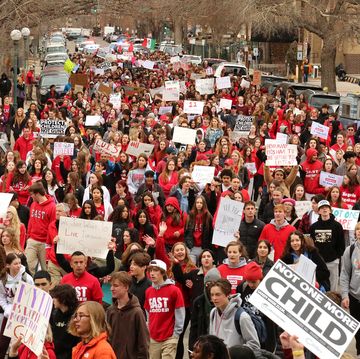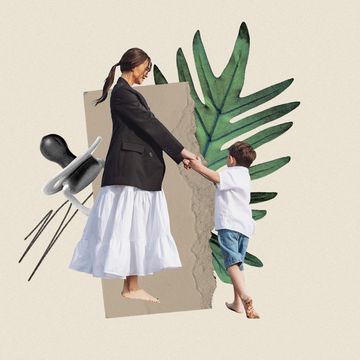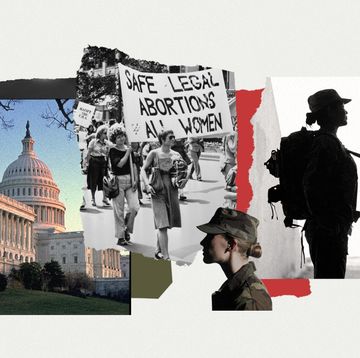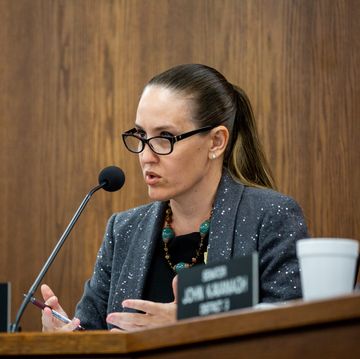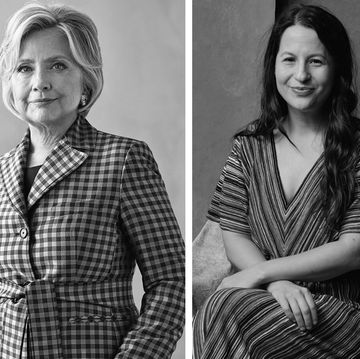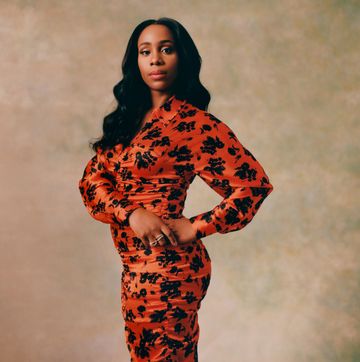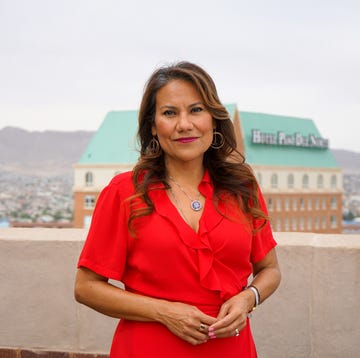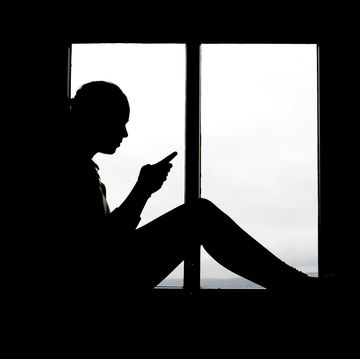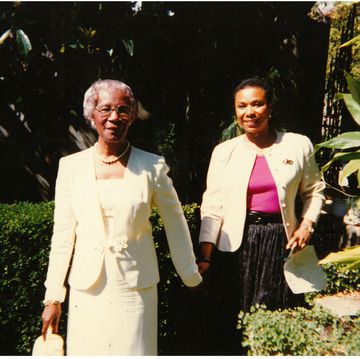For the grownups, even, there are no simple answers.
This week, we've learned of the lives and violent deaths of Alton Sterling and Philando Castile. Within 48 hours, both men were killed by police. An officer shot Sterling, 37, on Monday while a second had him pinned to the ground. Two days later, Castile, 32, was killed when he reached for his license and registration at a traffic stop. He had a broken taillight. During a Black Lives Matter protest in Dallas on Thursday, at least one sniper killed five police officers and wounded seven more.
Meanwhile, black mothers and fathers have to come home and face their black children—just as they did after the murders of Freddie Gray and Tamir Rice and Michael Brown and Eric Garner and Sandra Bland and countless more—and explain to them how this happened and why. By now, Melissa Harris-Perry (mother of Parker, 14, and Anna, 2) and GrassROOTS Community Foundation President Janice Johnson (mother of Marley, 11) are at a loss. Between them, they've mastered the data and know the research. They've read it all. And yet there is no foolproof guide to raising and protecting children while black.
Janice Johnson: When I got pregnant in 2004, my husband was a research assistant at Temple [University]. We lived in West Philadelphia. And I was home, writing my dissertation. We lived on $14,000. The summer before had been a really violent summer in Philly—lots of bad police interactions. And my husband had had lots of really violent interactions with police. He has been pulled off planes. He has been stopped. He has had to take off his clothes. He has gotten tickets for going too slow, for going too fast.
When we went to the doctor [at first], he couldn't say for certain what the sex would be. We didn't know. And up until then, I hadn't thought much about what the sex of the baby would be. Could be a boy, could be a girl. So, I wanted to talk to [my husband] about that, but he wasn't home. First, it was five minutes. Then it was hours, and he still was not home. I started to panic. I just remember this feeling, like, "Please let him come home okay and please let me not have a black boy."
In the end, it was three hours before Scott came home. He had stopped at a record store and his phone was not charged. I was furious. This is not the kind of world where you can just do that!
I was elated when we found out we were going to have a little black girl and not a little black boy. But of course this was before Sandra Bland and before I understood that the violence that [is done to] black boys is also done to black girls. I used to think they would have more protections, but that is not the case. [These shootings] are a reminder of that. They're an awful reminder.
So, now it's about how do you raise a racially-conscious child? What does it mean to raise a black kid now?
Melissa Harris-Perry: I grew up in an interracial house. My mom is white and my big sister, who did most of the child caring for me, is a white woman. You know, the person who most taught me to love my hair was my white mother. And that happened very intentionally. It happened because she went out and found black childcare providers and braided my hair and talked about it. [It happened because there was] an intentionality of racial identity development.
JJ: But on the larger scale, across whole communities of us, a lot of people don't have the resources or [time] to be so intentional. As in, "I was having a good old time—and now I am parenting." It sometimes just happens. [...] We're just living, you know? When you're living, there is not this intentionality, but parenting introduces this need for intentionality. In a racial environment, we all have to get very serious about the fact that equity and racial understanding must start early, especially when we don't have books to explain it. You know, I once told someone that I was going to write this book Yes, Your Teacher Is Nice—And He Is Still a Racist. This is what we deal with.
The truth is, for me, really, I just don't know what to do next as a parent. I have a cognizant child. I have a fairly liberated black husband, but I just don't know.
MHP: Yeah, I have no idea what to do.
JJ: I don't know what to do, but I have resources! I have an education. I live in a safe environment. But if a police officer pulled a gun on me around the corner from my house...
This moment feels greater to me than what else has happened in the 32 years I have been in the U.S. The problem with America is that violence is just everywhere [now]. This ubiquitous feeling of being unsafe all the time—it's not great for raising kids in.
MHP: Parker, my oldest, is about to start high school. We used to live in Princeton, New Jersey, which was the most enclave-y enclave you could imagine. She used to walk to school—the whole deal, right. It's idyllic. I loved those years for her. We never did play dates—you just walked outside. But when I got married, we moved from there to the Seventh Ward of New Orleans. And she went to school there from third grade through seventh grade. There was so much violence, quite specifically on our block.
Now, it was an intentional choice for us to be living there. It's where my husband already owned a home, but also we were making a commitment to that neighborhood as a family and we were making a political commitment to the city. But I watched it change her. The fear that she experienced—we didn't move from that block until the night that someone was shot on our front porch while we were sitting in our living room. Six inches to the left or to the right, and it would have been our front window.
During that time, I once heard her say, "Back in New Jersey, when I was white." She wasn't saying that she was actually white, right? But what she was saying was, "When I lived in a neighborhood that I was safe, where we could walk to school." And that was the moment that I realized that she had now identified that there are places in the world that are associated with whiteness that are a certain way and then places that are associated with blackness that are like this. And I saw that she was beginning to see how they rank and order and the internal psychic violence that it was causing her. And [I decided] we cannot do that. We have to get to a place where blackness does not equal lack of safety, where blackness can just be normal. Leaving New Orleans was incredibly difficult for my husband, whose family has been there for generations. But we did it. And that's a lot of why we live in North Carolina.
That said, there is no bubble. We know as black parents to tell our kids, "Put your hands at 10 and two." But we know that "10 and two" does not keep you safe.
JJ: We used to think that all of that would protect us, that respectability would protect us.
MHP: No, it never did. It never did.
JJ: But there was once this idea that the well-dressed, articulate black person could never get shot.
MHP: But then think of lynching . Like, the only reason some of these people got lynched was because they were so respectable.
JJ: But I think some people don't remember that or they don't know. One thing that black people claim is that we are more pious. That's the one thing we have. We are better people. This is an idea that really lives among us and so to tell people that that idea has always been a lie—that's hard. It means recognizing and knowing that nothing will protect you.
I think those of us that live in these spaces—we knew it was a mess. We knew it was a lie. We knew we were just fooling ourselves. We don't even have the delusion. But now to have to potentially take that away from my kid? I am old. And I can deal with that. But now you want me to take it away from my kid? Now, she has to know, too? And what will knowing even get her? Knowing still will not even protect [our children]—knowing only makes you sad like me. And that's awful. That's what I find awful.
MHP: What I will say is we don't know if it makes them sad. We don't know. I mean, sometimes it just makes them way more woke than us!
JJ: That's a good social science question. What does knowing get you?
MHP: I mean, babies in Ferguson—they probably already knew. My favorite thing about Ferguson is how fancy the children are. [And the women] show up and they are also terribly fancy. I started wearing lashes after [Michael] Brown's death, because some of the most badass women in Ferguson wear lashes. The brows are done. The lashes are fly. And they are wearing masks to protect them from the tear gas.
JJ: They are completely contoured and beautiful.
MHP: We do fly in the middle of tear gas! The insistence of black people to live is so extraordinary to me. [...] And it doesn't mean that we are not hurting. It's just to say that at the same time, we can—
JJ: We can be pained and resilient at the same time. I feel completely over-rocked by what has happened, but I also am elated at this moment. When people talk about the history, when they talk about people being born to survive—there has to be something in there. There is no reason for black people to be alive on this planet. The math on it is wrong. The math on it is wrong! And yet, we defy it.
MHP: So that's all. That for me is the thing that makes it—not okay, but why we stay up late and then we do go ahead and talk to the kids about it.
JJ: You cannot not talk about it. We have to talk about it.
